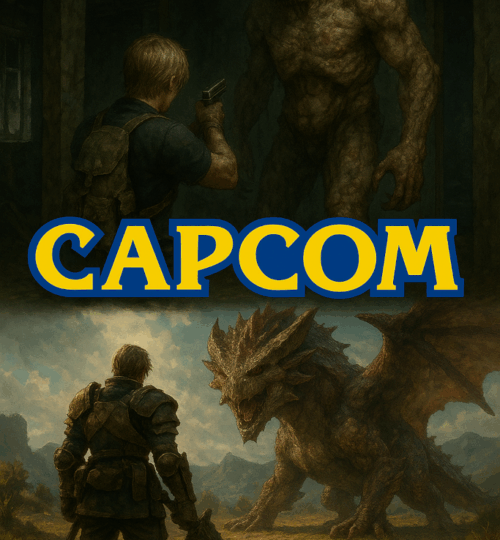Did you catch that Capcom showcase? Because the hype meter just exploded into a million pieces, and no one’s even mad about cleaning up the mess. After years of wondering what Capcom had cooking in their development kitchens, we finally got some serious answers, and they’re exactly the kind of answers that make you want to clear your entire gaming calendar for the next two years.
Monster Hunter Wilds: The Hunt Continues to Evolve
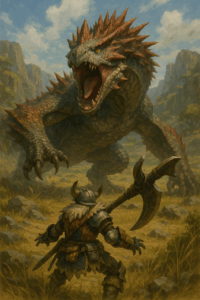 First up, let’s talk about the absolute unit that is Monster Hunter Wilds. When Capcom said this beast was “on track,” they weren’t just giving us corporate speak, they were essentially saying “buckle up, hunters, because we’re about to blow your minds again.” And honestly, after the massive success of Monster Hunter World and the portable perfection that was Monster Hunter Rise, expectations were already stratospheric. Somehow, Wilds looks like it’s going to clear that bar with room to spare.
First up, let’s talk about the absolute unit that is Monster Hunter Wilds. When Capcom said this beast was “on track,” they weren’t just giving us corporate speak, they were essentially saying “buckle up, hunters, because we’re about to blow your minds again.” And honestly, after the massive success of Monster Hunter World and the portable perfection that was Monster Hunter Rise, expectations were already stratospheric. Somehow, Wilds looks like it’s going to clear that bar with room to spare.
What’s got many people absolutely buzzing about Wilds is how it seems to be taking everything that made World special, that sense of being a tiny human in a massive, living ecosystem, and cranking it up to eleven. The “Wilds” in the title isn’t just marketing fluff; it’s a promise. We’re talking about environments that feel genuinely untamed, where every hunt feels like you’re venturing into uncharted territory rather than just selecting a quest from a menu board.
The technical leap from Rise back to a more World-style experience has people particularly excited. Rise was incredible and the wire bug mechanics added a whole new dimension to hunts. But there was something about World’s weighty, grounded combat that just felt more visceral. Every swing of your great sword had consequence, every monster roar made you feel genuinely small. From what we’ve seen of Wilds, it looks like they’re bringing back that sense of heft while incorporating the mobility lessons learned from Rise.
But here’s what really gets the hunter instincts tingling, the promise of dynamic weather systems and day-night cycles that actually matter. We’ve had these features in games before, but Capcom seems to be implementing them in ways that fundamentally change how hunts play out. Imagine tracking a Rathalos through a thunderstorm, where the lightning isn’t just atmospheric but actually affects the monster’s behavior. Or planning a hunt around a creature’s nocturnal patterns, knowing that your approach at midnight will be completely different from your strategy at high noon.
The ecosystem interactions look more complex than ever, too. Monster Hunter has always been about understanding your prey, but Wilds seems to be pushing that concept into new territory. We’re looking at food webs, migration patterns, and territorial disputes that create organic, emergent storytelling. Every hunt becomes not just a boss fight, but a nature documentary where you’re both the camera operator and the apex predator.
Resident Evil: A Return to Psychological Terror
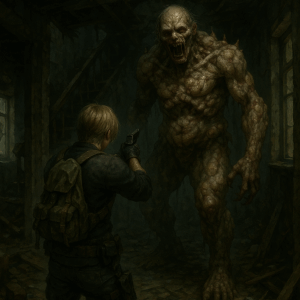 Now, if Monster Hunter Wilds has most of us hyped as a hunter, the announcement of the next mainline Resident Evil has people simultaneously excited and terrified as someone who loves a good horror experience. Capcom’s decision to return to a third-person perspective feels like they’re acknowledging what made RE2 and RE3 remakes so phenomenally successful, that perfect balance of action and atmosphere that makes you feel powerful enough to fight back but never quite safe enough to relax.
Now, if Monster Hunter Wilds has most of us hyped as a hunter, the announcement of the next mainline Resident Evil has people simultaneously excited and terrified as someone who loves a good horror experience. Capcom’s decision to return to a third-person perspective feels like they’re acknowledging what made RE2 and RE3 remakes so phenomenally successful, that perfect balance of action and atmosphere that makes you feel powerful enough to fight back but never quite safe enough to relax.
The phrase “returning to a third-person horror focus” is music to undead-fighting ears. While RE7 and RE8 were incredible games that revitalized the franchise, there was something about the first-person perspective that, while immersive, sometimes made the experience feel more like a haunted house simulator than a Resident Evil game. The third-person view brings back that classic RE DNA, the way you could see threats approaching from just outside your field of view, the dramatic camera angles that built tension, and most importantly, that sense of controlling a character rather than being the character.
What has people particularly excited is the emphasis on “horror focus.” Recent RE games have been fantastic, but they’ve also been increasingly action-heavy. RE4’s remake was a masterpiece, but it was also a very different kind of scary than the slow-burn psychological terror of the earlier games. A return to horror focus suggests we might be getting back to the roots of what made Resident Evil legendary, that creeping dread, the resource management anxiety, and the feeling that every corner you turn might be your last.
The timing feels perfect, too. The horror game renaissance we’ve been experiencing over the past few years has shown that audiences are hungry for genuinely scary experiences. Games like Visage, Madison, and even Capcom’s own RE2 remake have proven that there’s a massive appetite for horror that doesn’t rely solely on jump scares but builds genuine psychological tension.
Capcom’s Master Class in Franchise Management
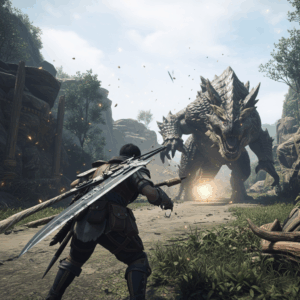 What impresses people the most about these announcements is how they demonstrate Capcom’s incredible understanding of their own franchises. They’re not just making sequels; they’re making the right sequels at the right time. Monster Hunter Wilds is building on the foundation of World while incorporating lessons from Rise. The new Resident Evil is acknowledging the success of recent entries while recognizing what longtime fans have been craving.
What impresses people the most about these announcements is how they demonstrate Capcom’s incredible understanding of their own franchises. They’re not just making sequels; they’re making the right sequels at the right time. Monster Hunter Wilds is building on the foundation of World while incorporating lessons from Rise. The new Resident Evil is acknowledging the success of recent entries while recognizing what longtime fans have been craving.
This is franchise management at its absolute finest. Capcom has taken two of gaming’s most beloved series and instead of playing it safe, they’re taking calculated risks that feel both innovative and respectful of what came before. They’re not chasing trends or trying to be something they’re not, they’re being the absolute best version of themselves.
The development timeline for both games also shows a company that’s learned from its past mistakes. Remember when Capcom was rushing games to market and disappointing fans? Those days seem long gone. The fact that Monster Hunter Wilds is “on track” rather than being rushed suggests they’re taking the time to do it right. The careful approach to the Resident Evil announcement, focusing on the horror elements rather than just showing flashy action sequences, indicates they understand what their audience wants.
Looking Ahead: A Golden Age for Capcom Fans
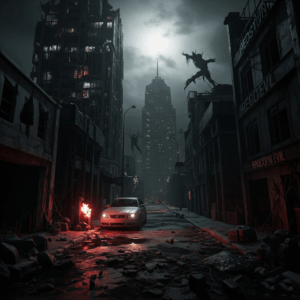 Someone who’s been gaming for decades can honestly say that Capcom is in the middle of what might be their strongest period ever. Street Fighter 6 exceeded expectations, the Resident Evil remakes have been consistently excellent, Monster Hunter has found its footing on modern platforms, and now we’re getting what look like definitive entries in both the Monster Hunter and Resident Evil franchises.
Someone who’s been gaming for decades can honestly say that Capcom is in the middle of what might be their strongest period ever. Street Fighter 6 exceeded expectations, the Resident Evil remakes have been consistently excellent, Monster Hunter has found its footing on modern platforms, and now we’re getting what look like definitive entries in both the Monster Hunter and Resident Evil franchises.
The best part? This feels sustainable. These aren’t desperate attempts to recapture past glory, they’re confident steps forward from a company that knows exactly what it’s doing. Monster Hunter Wilds and the new Resident Evil represent different aspects of what makes gaming great: the cooperative thrill of conquering impossible odds with friends, and the solitary terror of facing your fears in digital darkness.
Many people are officially on the Capcom hype train. The wallet might not thank you when these games launch, but the gaming soul absolutely will. The hunt continues, the horror returns, and honestly? Many people couldn’t be more ready for both.

